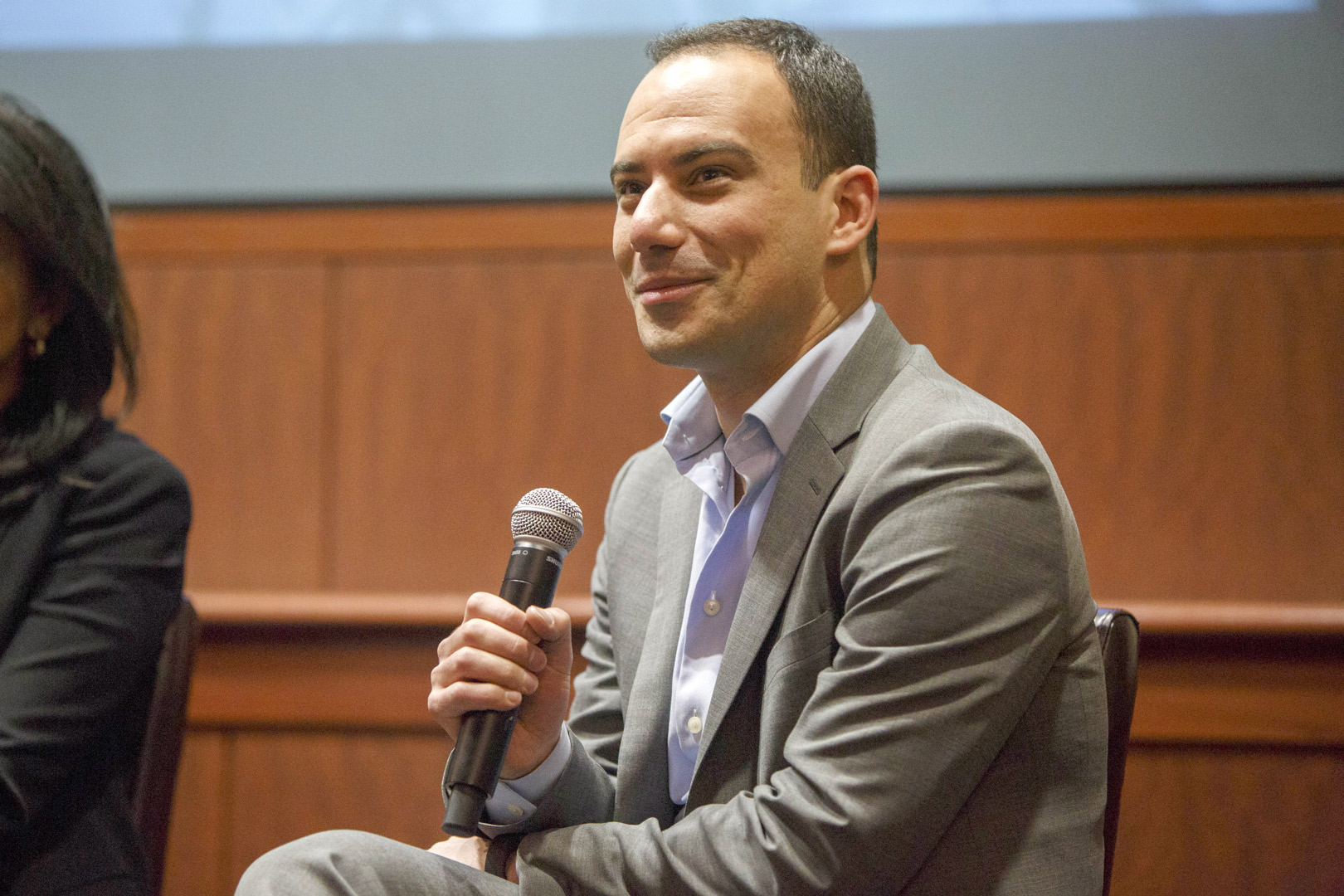By Dan Simmons, GW Alumni News
On a Tuesday morning at the start of his sophomore year at GW, Mosheh Oinounou, SMPA BA ’04, began an internship that may have led him to a political future. But history had other ideas.
The internship for Sen. Richard Durbin (D-Ill.) from his home state began September 11, 2001. He was barely in the door for orientation when Durbin’s office, and all of Capitol Hill, evacuated. Hijacked planes had already hit the Twin Towers in New York City, with another plane hitting the Pentagon and others feared en route to the Capitol.
In the hours that followed, Oinounou found himself back on campus but unable to communicate. Phone lines were down. The first call that successfully came through carried urgency. “Where are you?” It was a colleague at The GW Hatchet, GW’s student newspaper where Oinounou was on staff.
“It clicked,” says Oinounou. “That’s where I need to be.”
He grabbed a pen, a notebook, and a photographer and hit the streets of D.C. to report the story of the century for his college paper. Oinounou now serves as executive producer of The CBS Evening News, and his path there got a major burst of momentum starting that tragic morning.
“I realized that day that I truly loved reporting, asking questions and communicating information to the public, and that The Hatchet would be the best way to do it during my time at GW,” he wrote in a 2004 Hatchet column.
It also affirmed his choice to attend GW, picking it over schools such as Illinois and Wisconsin that are closer to his suburban Chicago hometown.
“There was something very attractive about being in Washington at a school that’s in the center of everything,” he says. “Having an interest in the media and politics, GW became a natural place to go to college.”
Oinounou rose to become The Hatchet’s editor-in-chief, which he notes gave him early experience in newsroom management, then continued at GW in graduate school, earning a master’s in Security Policy Studies. Among many influential professors, Steve Livingston, Steve Roberts, Edward Gnehm, Frank Cilluffo, and Mike Shanahan come to mind for their roles in molding Oinounou into the professional he is today, he says.
He credits his time as a production assistant for NBC Sports at the 2004 Summer Olympics for his decision to pursue his career in broadcast journalism, despite his past in print at the The Hatchet.
He spent four years as a producer at Fox News and two years as an international editor for Bloomberg TV before joining CBS News in 2011 as senior producer of CBS This Morning. He later helped launch CBSN, the CBS News 24-hour streaming channel, in 2014. He was its first executive produce working with Jeff Glor.
When Glor was promoted to anchor of the network’s nightly newscast, Oinounou followed, being named to his current job in February.
“It’s effectively a return to broadcast back from digital, with the lessons learned from digital,” he says. “It’s a show that’s one half hour every night, but at the end of the day is a 24-7 news program. You have to take 24 hours of news and synthesize it into, once you throw out the commercials, 22 minutes.”
The show recently celebrated its 70th anniversary on air, and its place as the first nightly network newscast in the U.S., a program where Walter Cronkite and Dan Rather explained history as it happened to generations of Americans, inspires him.
“First and foremost, it’s a humbling responsibility and an honor,” he says. Early on, he sought out staffers throughout the newsroom for guidance and pledged to listen to their ideas. Going forward, he hopes to steer the iconic program into greater relevance in a quickly shifting media landscape, where consumers expect to be met on multiple platforms and devices at the same time.
“Our responsibility now as a news organization is to ensure that, 24 hours a day, people are able to quickly find out what’s happening and what it means,” he says.
It’s not an easy task, but Oinounou feels prepared, starting with his student days at GW.
“I continue to look back at my experience as transformational,” he says. “It enabled me to get the education both in the classroom and around the city that’s been critical in my career.”


